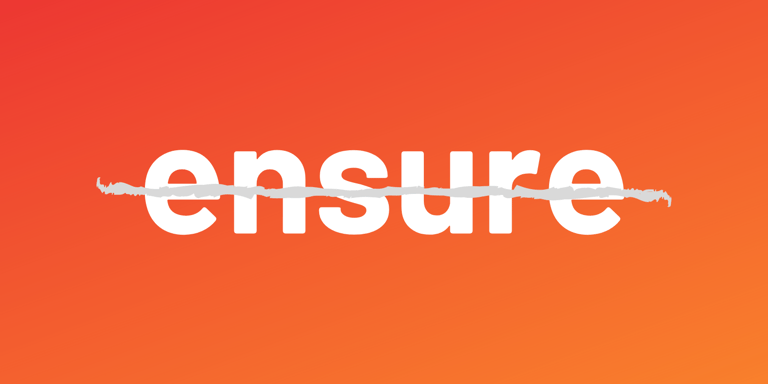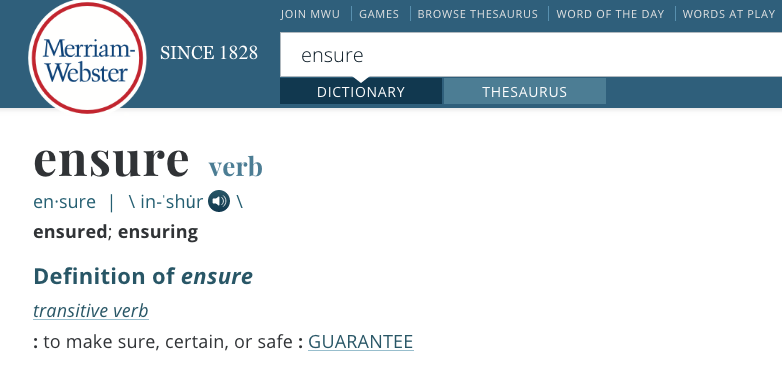Subscribe now and get the latest podcast releases delivered straight to your inbox.
How Passive Words Undermine the Big Ideas in Your Content (& How to Fix It)

By Liz Murphy
Jul 19, 2019

Look, we've grown quite close over the past couple of years. At this point, I feel as if I can tell you anything. So, it is with that in mind that I feel I need to come clean about something:
I am a petty person.
In fact, when Reese Witherspoon's character on Big Little Lies uttered this line during the show's spectacular first season...

(HBO)
...I felt seen and understood on an almost spiritual level.
Yes, for the most part I'm a mature and easy-going woman in her mid-30s. But just below the surface of my carefree attitude are numerous grievances and grudges I will cling to until my dying breath.
For example, I simply will not accept that pineapples grow like squat little bushes:

(Image source unknown)
I learned about this logic-defying crime against nature two years ago, and I will never, ever be OK with it as long as I live. And I will continue to wait for the apology I believe I am owed from the pineapple... or its designated representative.
But that's nothing compared to the angst I feel about a single word that, I believe, has become a plague in the content marketing world:

Every time I catch myself typing "ensure" in a draft, I cringe. And every time I see it used in a blog article, I want to go out of my way to ensure the author knows how much they have wounded me.
Why do I feel so strongly about it? I'm glad you asked.
Here's my problem with the word "ensure"
"Ensure" is a wimpy word.
For example, instead of being direct and saying:
"Your sales and marketing teams need to be on the same page and bought into the 'why' behind your new digital sales and marketing strategy. Otherwise, you'll undermine your new strategy before it even gets off the ground."
Some of you might say:
"Ensure your sales and marketing teams both are bought into the 'why' behind what you're doing, so your new digital sales and marketing strategy will have a higher probability of being successful."
See the difference?
The first version is action-oriented, communicates urgency, and is clear and direct. The second version is polite, passive, and sounds more like a suggestion.
Part of me wants to be completely irrational and banish "ensure" to some sort of content marketing word graveyard, never to be seen or heard from again. But another more logical part of me understands that there are a (very limited) number of circumstances when it's perfectly fine to use the word.
Moreover, I know deep down that the real problem isn't the word "ensure" itself. But rather, its overuse speaks to a larger issue I've seen time and again when coaching others on their content.
We're deathly afraid of turning off our audience by sounding like bossy know-it-alls
We all know someone like that, and they're terrible.
You ask them a question, and before you've even gotten to the end of it, they've already got a patronizing hand on your shoulder, and they're rattling off a list of solutions with a caring but condescending tone of, "You poor, simple-minded seahorse; don't worry, I'm here to save you."
Yes, they probably helped you. However, that doesn't change the fact that they are (and always will be) completely insufferable.
"Ensure" is a crutch we all lean on — both consciously and subconsciously — to avoid sounding too pushy or bossy when giving advice.
But it's not the only one.
"Consider" is another that comes to mind.
Instead of telling someone to do something with any degree of conviction or authority, you ask them politely to "consider" a course of action.
For instance:
"If you don't like paying thousands of dollars in fines or going to prison, consider filing your taxes on time and reporting your income honestly."
(Although, for some reason, "consider" doesn't bother me as much.)
As digital marketers and businesses, we know we need to honestly and transparently answer the most pressing questions of our buyers, no matter how uncomfortable a particular topic may be.
But, somewhere along the line, we got scared.
In an effort to avoid being perceived as arrogant blowhards who only speak in absolutes — I don't want to sound that way either, trust me — many of us have retreated into the content marketing version of every bumbling and befuddled Hugh Grant character in a 1990s romantic comedy.
This is a safe strategy that will ensure (ha!) that you come across as polite and inoffensive.
Unfortunately, that's not what your audience wants from you.
If they're looking for you to help them solve a problem, they're going to want you to sound confident in your answers. Otherwise, they won't be confident that what you're suggesting or sharing will actually help them get the results they're looking for.
Furthermore, if you're trying to get an important point across or express a strong opinion (and be memorable in the process), words like "ensure" and "consider" are the kiss of death.
So, what should we do instead?
A few tips on how to assertively convey opinions and ideas (without turning people off)
First, I want you to relax. Articulating thoughts with authority — without falling into the trap of sounding overbearing — is not as hard as you think.
Use action-oriented, direct language when expressing ideas:
"Here's the bottom line, everybody. You need to exercise and maintain an active lifestyle if you want to lose weight."
Then, depending on the context of what you're talking about, you can empathize with other points of view:
"Of course, that's a lot easier than it sounds. Especially if you don't consider yourself an active person or you're currently recovering from an injury. So, I want to start by talking about how we can address some of those common barriers to an active lifestyle, and how you can overcome them."
Another one of my favorite tricks — again, very much dependent on context — is something I refer to as the "learn from my mistakes" strategy:
"If you're a content manager, you need to invest in a content collaboration platform like GatherContent. I cannot emphasize this strongly enough.
Even though it may feel like you're saving money, the endless hours you'll experience of feeling frustrated, chasing down deadlines, digging through emails, and fielding countless questions about the status of content — instead of doing your real job — will never be worth it.
However, I say this not as someone who is incentivized in any way to promote the platform. Instead, I'm a seasoned content management professional who spent many years pulling my own hair out, as I tried to create order out of a chaos of emails, competing document versions, and zero oversight of deadlines."
I came out guns blazing with a very clear directive — get thee a content collaboration platform, unless you want to go crazy and waste your time as a content manager.
But then I owned up to the fact that I only am able to speak with such authority because I made the mistake of trying to make my content management processes work without a tool like GatherContent.
Could I have said:
"If you want to ensure visibility into your content production pipeline and an orderly approach to your content management processes, you may want to consider a collaboration platform such as GatherContent."
Sure. I guess.
But that's confusing, impersonal, and doesn't convey the true urgency of the problem I'm trying to help people solve. And that's the last thing you want.
Additionally, avoid presumptuous, absolutist phrases like, "As we all know."
Because if we did "all know," no one would be asking you questions about whatever subject it is that you're discussing. On top of that, if someone reads a statement that says "we all know" something — but they didn't consider whatever you posited as a "universal truth" prior to that moment — you'll make them feel like an outsider who doesn't "get it."
You don't want that either.
Of course, these are only a few examples of how you can adopt a more direct and candid approach in your writing. There are also thousands of ways you can speak your mind without scaring your audience away.
However, if you only remember one thing, let it be this:
If you want to be a memorable thought leader and have your ideas stand out (for the right reasons), you have to stop writing from a fear-based posture.
Be yourself. If you believe in something strongly, articulate it with conviction, explain exactly why, and then address (with empathy) how your audience is likely feeling in response to your statement.
That can be a big mental switch to flip, I know, and it may feel uncomfortable at first.
But here's an easy baby step to help you get started — the next time you catch yourself using the word "ensure," ask yourself, "Can I do better?"


Order Your Copy of Marcus Sheridan's New Book — Endless Customers!